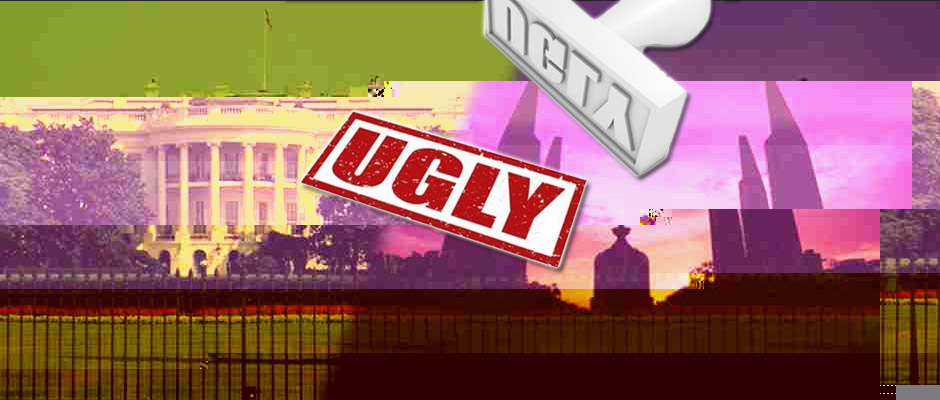On January 26, 2015, the assistant secretary of state for East Asian and Pacific affairs, Daniel R. Russel, delivered a speech at Chulalongkorn University, urging the end of martial law throughout the country and the removal of restrictions of speech and assembly. 1 In the following days Thai Prime Minister, Prayuth Chan-ocha, lambasted the speech, and said martial law would not be lifted as it could lead to political disturbances. 2 Subsequently, a group of Thai people gathered to protest in front of the U.S. embassy in Bangkok. On January 30, well-known Thai columnist Thanong Khanthong wrote in the Nation: “…the incident brings to mind ‘The Ugly American,’ …” which portrayed “…America’s arrogant behavior towards a third-world country.” He added that “many Thais” reacted with fury to “what is being widely seen as a case of the U.S. meddling in Thai politics.” 3 In fact, it is those “many Thais” who have permitted the Ugly Americans to “meddle” in Thai politics throughout the Cold War right up to the present day.
The Ugly American; the easiest target
Thailand was not directly colonized by the European imperial powers as the longstanding legend of never-colonized Siam has taught us. This never-colonized myth preaches another significant, widely accepted belief that deserves more critical scrutiny: the shrewd and adroit diplomacy of the Thai elites in preserving Siam’s/Thailand’s independence. What Thanong has conveniently forgotten to mention about the arrogant American is that Thailand was the closest and most important ally for the U.S.’s anticommunist crusade in Southeast Asia from the beginning of the Cold War. Just like the U.S. chose Thailand to become its anticommunist bastion of Southeast Asia, Thai ruling elites chose to collaborate with the U.S. to fulfill their own agendas. From the early 1950s, Thailand provided its territory to the U.S. to prepare covert and overt aggression against China and Indochina. Not only did Phibun Songkhram and his political rivals, Sarit Thanarat and Phao Siyanon, avidly compete for American financial and military support to enhance their power basis, a successor of the triumvirate leaders, Thanom Kittikachorn, also continued to allow the U.S. to utilize Thailand for conducting one of the most destructive air bombardments in history which took place in Laos, Cambodia and Vietnam during the years of the Vietnam War. Additionally, the Thanom administration deployed Thai armed forces — so called the “volunteers” — to Laos and Vietnam in the 1960s and 1970s. 4
The main reason why these military leaders permitted the Ugly Americans’ presence in Thailand during the Cold War is two-fold: By allowing Thai territory to be used as a central base for American armed forces, Thai military regimes could extract lucrative aid to develop Thailand’s economy and its armed forces, which would in turn invigorate their political authority and legitimacy. Additionally, American’s presence in Thailand was believed to offer a psychological barrier against the communist aggressors. Therefore, when the Thai and U.S. governments announced a reduction of U.S. Thai-based combat troops in May 1975 immediately following the fall of Saigon, large numbers of pro-American Thais protested against the decision. Sarit’s words to the director of the Far East Region in June 1962 well summarize this symbiotic relationship of the U.S. and Thai military during the Cold War: “…we have no choice. We have jumped into pool [sic] with you and we are now swimming together” 5
In this way, the Thai ruling elites “indigenized” the American Cold War system. Through voluntary collaboration, Thai military strongmen could raise American economic and military aid to Thailand, which helped them to extend their own power domination. 6 Broadly speaking, the U.S. support for the authoritarian leaders in their Asian allies is not uncommon, as in the cases of Ferdinand Marcos in the Philippines, Ngo Dinh Diem in South Vietnam, Suharto in Indonesia, and Park Chunghee in South Korea. What we should note with caution in those cases is the local ruling elite’s continuant use of the same old rhetoric that juxtaposes the U.S. as a hegemonic power and the indigenous people as mere victims of international power rivalries. This so-called ‘Pax Americana’ discourse has been utilized by the local elites like an invisibility cloak to cover their undemocratic actions. At the same time, by criticizing the Ugly Americans, the local elites could elevate themselves as nationalist, patriotic leaders with no fear of the superpower.
The most recent coup in May 2014 brought Thailand back to the list of countries under military dictatorship. Mr. Russel, as an envoy from the longstanding leader of the Free World, made a speech calling for the lifting of martial law and to give more freedom to Thailand’s people — points which the U.S., whether it be genuine or hypocritical, has publicly and continuously proclaimed in the past century. Led by the current prime minister who assumed power after staging a coup against the elected civilian government, Thai elites including Thanong have accused Mr. Russel of not respecting political autonomy and sovereignty. In response, ‘many Thais’ are outraged against this superpower’s alleged intervention in their domestic politics. While passing over the apparent fact that the current government has not even bothered to schedule a general election, the American envoy’s typical diplomatic remarks created a kerfuffle because it did not sound like advocating the current Thai military regime’s proposed “roadmap” back to democracy. It is this spontaneously heightened patriotic sentiment that has sustained the role that the Ugly American has to play in Thailand from the past century up to the present.
After all, the U.S. could have not enjoyed such omnipresence, and presumably hegemonic power without the local elite’s willing collaboration. Having said this, I do not intend to direct accusation of all the Cold War tragedies toward the indigenous collaborators and absolve the U.S. Nevertheless, we should pay close attention to the fact that the Thai ruling elites still use Pax Americana to locate the easiest target — the U.S. in this case — to obscure their responsibilities in politics and society. They are those ugly Thais who constantly bring the Ugly Americans back to Thailand in the post-Cold War era.
SINAE HYUN
Post-doctoral Fellow, Global Asia, Nanyang Technological University, Singapore.
Kyoto Review of Southeast Asia (Issue 17), Young Academics Voice, May 2015
Watch Daniel R. Russel delivering his public lecture on “U.S. Engagement with the Asia-Pacific Region in 2015” at Chulalongkorn University, 26th January 2015. At the end of his lecture he fields questions from the audience.
[youtube id=”dKUk2fFh1dc” align=”left” mode=”thumbnail”]
Notes:
- The full script of Mr. Daniel R. Russel’s speech and question and answers at the site are now available in the U.S. Department of State website. Daniel R. Russel, “Remarks at the Institute of Security and International Studies,” U.S. Department of State, 26 January 2015, accessed 20 February 2015, http://www.state.gov/p/eap/rls/rm/2015/01/236308.htm. ↩
- “Prayut rebuts US Snub,” Nation, 28 January 2015, accessed 6 February 2015, http://www.nationmultimedia.com/politics/Prayut-rebuts-US-snub-30252812.html. ↩
- Thanong Khanthong, “The Ugly American is Alive and Kicking,” Nation, 30 January 2015, accessed 6 February 2015, http://www.nationmultimedia.com/opinion/The-Ugly-American-is-alive-and-kicking-30252976.html. ↩
- For a detailed account on the Thai volunteer soldiers to the Vietnam War, see, for example, Richard A. Ruth. In Buddha’s Company: Thai Soldiers in the Vietnam War. (Honolulu: University of Hawaii Press, 2010). ↩
- “Memorandum From the Director, Far East Region, Office of the Assistant Secretary of Defense for International Security Affairs (Heinz) to the Assistant Secretary of Defense for International Security Affairs (Nitze), Washington, June 26, 1962,” in FRUS 1961-1963 Southeast Asia, 949. ↩
- For the definition and empirical studies on the concept of “indigenization,” see Sinae Hyun. “Indigenizing the Cold War: Nation-Building by the Border Patrol Police of Thailand, 1945-1980.” (PhD diss, University of Wisconsin-Madison, 2014). In this dissertation, I argue that the indigenous ruling elite “voluntarily” and “selectively” collaborated with the global superpowers to achieve their power domination in the local society. ↩

